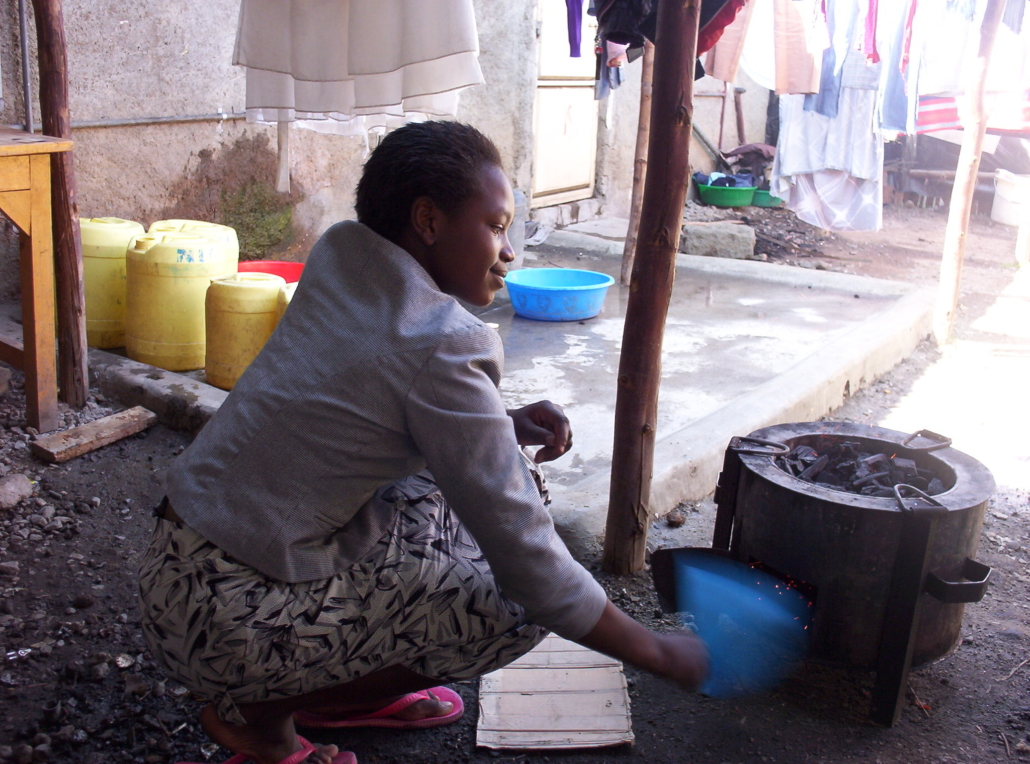Peter Njeri Wins Award for His Engineering Projects in Kenya

Visionary engineer and company co-founder Peter Njeri has won the 2023 Waislitz Global Citizen Grand Award for his work on a method that reduces indoor pollution by turning plastic waste into clean energy. Today, more than 10,050 Kenyan families use his equipment to reduce deaths due to indoor pollution.
Indoor Pollution in Kenya
According to data from the World Health Organization (WHO), about 3.2 million people die from indoor pollution every year. Women and children are affected the most since they carry the burden of household chores. In conservative estimates, about 23,000 of the 3.2 million deaths are low-income women living in Kenya. Health complications from indoor pollution are caused by the unsafe burning of biomass fuels such as charcoal, kerosene, firewood and dung. The use of indoor fires has been linked to many respiratory diseases. It has been reported in villages from western Kenya that 92% of women and 95.4% of children had coughs of varying intensities during the year 2022.
Energy poverty is a major factor responsible for these deaths. In northeastern Kenya, 88% of households are classified as acute energy poor. Today, one-third of the global population remains without access to clean cooking energy.
Peter Njeri, now an engineer and CEO of Mega Gas Alternative Energy, grew up in Soweto, where he observed the effects of energy poverty and indoor pollution first-hand. Many Kenyan mothers, like Njeri’s, have many children to feed. They are therefore exposed to harmful fumes from indoor fires for more than five hours every day. Njeri always noticed that his mother would choke and cough because of the indoor fire. This was a common occurrence in other households and communities as well. Njeri saw many women get sick and die; one of the cooks at his school passed away without a warning. People blamed the cause of death on her proximity to a hot stove, but Njeri knows the truth now.
Njeri’s Solution
Plastic waste is an overabundant material in Kenya. It litters the streets, playgrounds and countryside. Nairobi generates more than 480 tons of plastic every day, and EU Countries are additionally dumping 37 million items of “junk plastic clothing” on Kenyan land every year. Many people are at risk of coming into contact with plastic that contains biohazardous materials that can cause serious burns. Kenya’s natural ecosystems are destroyed as the plastic waste creeps into lakes and rivers. Both people and animals that live on those lands are threatened by flash floods, as the plastic waste clogs the drains.
Njeri’s education at the Royal Academy of Engineering provided him with the tools to turn plastic waste into clean gas with no pollutants or emissions, tackling both the indoor pollution and plastic waste problems in Kenya. The plastic is converted to gas by a thermal cracking process. Njeri’s clean gas has a high calorific value, burning for a long period of time. It is therefore a much cheaper alternative to biomass fuels.
Additionally, Njeri co-founded Mega Gas Alternative Energy, a clean-tech company on a mission to provide clean and affordable cooking energy for low-income families. The company hires Kenyan women, the group that has been affected the most by indoor pollution, to collect plastic waste and resell the clean gas product back to the community. The 6 kg gas canisters that the company sells back to the communities are only $4 per canister. For an even more reduced price, families can pay only $0.2/hr for access to a fully-kitted community kitchen. The company works closely with chiefs and village elders every two weeks to generate informed solutions. This protects the environment as well as the people. The company’s closeness with Kenyan communities has led to its success.
The Impact
Because of Njeri’s solutions, 250 tons of plastic waste are recycled each month, there are two community kitchens available for on-demand use, 100 Kenyan women have been employed in stable jobs and 12,164.76 tons of CO2 emissions have been prevented.
For his innovative work and impact, Peter Njeri has won the 2023 Waislitz Global Citizen Award Grand Prize. These awards have been taking place for nine years now, awarding citizens for their empowering missions to end extreme poverty. The winners of these awards will receive cash prizes and networking support that help them accelerate the scale of their impact. The Waislitz Global Citizen Award will allow Njeri and his company to serve an additional 5,400 families each month.
Currently, more than 10,050 families are using Njeri’s technology for cooking. His impactful work has not gone unnoticed in the world. His prize will provide him with the means to take his work even further, inspiring others to use their own skills to end global poverty.
– Sophia Holub
Photo: Flickr
